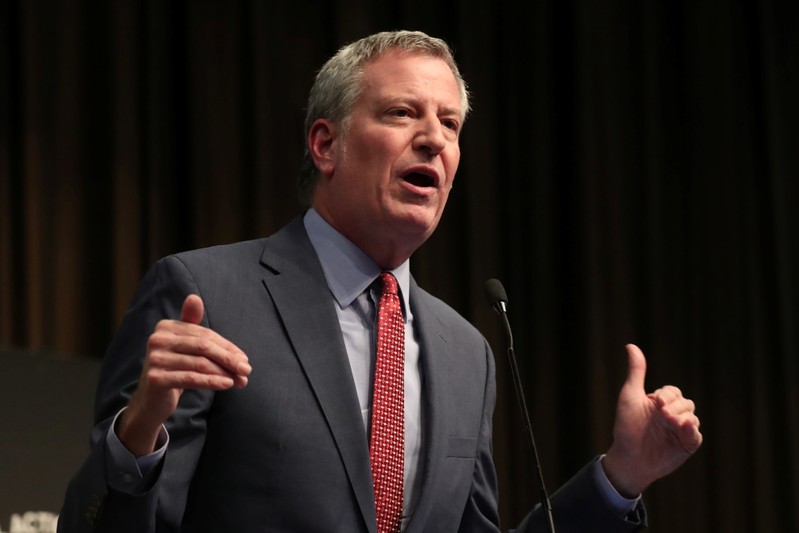
U.S. President Donald Trump (R) welcomes Chinese President Xi Jinping (L) to the Mar-a-Lago estate in West Palm Beach, Florida, on April 6, 2017.
Jim Watson | AFP | Getty Images
China has a so-called “nuclear option” in its escalating trade war with the United States — to sell off the U.S. Treasury bonds it currently holds and potentially trigger a massive rise in interest rates, causing plenty of damage to the world’s largest economy.
But the probability of Beijing exercising such an option is “very low,” according to Neeraj Seth, head of Asian credit at BlackRock.
“First of all, if you look through the last 12 months, and we’ve gone through enough of the trade tensions, China still holds about $1.13 trillion of U.S. Treasurys,” he told CNBC’s “Squawk Box” on Tuesday. That’s down about $46 billion in a 12-month period, Seth said adding that the 4% decline “is nothing significant.”
Beijing currently owns a fraction of the total $22 trillion in U.S. debt outstanding — but it is more than 17% of the various securities held by foreign governments, according to the Treasury and the Securities Industry and Financial Markets Association.
While China may not be aggressively buying more U.S. government notes, it is not actively selling in the markets either, Seth said.
Asked if Beijing could potentially try and swap Treasurys with other government notes, he pointed out that there aren’t enough “high quality risk-free assets” out there and, from a developed markets perspective, U.S. Treasurys remained the “highest yielding risk-free assets possible.”
Other analysts offered a similar assessment and said such a move would be a “self-destructive nuclear option” for China.
Treasury yields fell on Monday as investors fled the equity markets for the relative safety of government debt.
Yuan watch
Still, investors are closely watching moves in the Chinese yuan as trade tensions between the world’s two largest economies intensify.
On Monday, the Chinese currency dropped to its lowest levels against the dollar since December. The on-shore yuan traded around 6.8713 as of 12:48 p.m. HK/SIN on Tuesday and if it hits 7 yuan per dollar, Beijing could potentially intervene to stall the depreciation.
“The level of dollar/yuan at 7 is an important psychological barrier, both for the market, in terms of the investor side, as well as from the domestic regulators,” Seth said, adding that while a weaker currency remains one of the tools China can use, it will not likely do so easily. “It’s very important to note the fact that a currency war in the current scenario is not going to be positive for anyone.”
A weaker yuan makes Chinese exports relatively cheaper in dollar terms. But such a move could also potentially trigger capital outflows from China and make imports more expensive.
“China’s policy-makers have plenty of policy tools to withstand the negative shock from the trade war, but the potential long-term cost is huge,” analysts at Macquarie wrote in a recent note. With a lot at stake, including national pride, “policy-makers have no choice but to maintain a stable economic backdrop amid the upcoming trade negotiations.”
Macquarie said that at this stage, it’s still unclear what the actual size of the damage caused by the trade war is — it could lead to slowing exports, rising uncertainties and a softening global economy, they said. “As such, policy tone could change as early as in the July Politburo meeting” — a top decision-making body of China’s ruling Communist Party.
Trade tensions escalated last week after the U.S. raised duties on $200 billion in Chinese goods to 25% from 10% and as negotiations in Washington concluded without a deal. In retaliation, China announced Monday that it will increase tariffs on $60 billion worth of U.S. items, which include a broad range of agricultural products.
It is possible that U.S. President Donald Trump and Chinese President Xi Jinping could meet at the June G-20 summit in Japan, according to White House Economic Advisor Larry Kudlow.
“When you think of this broader U.S.-China trade tensions, there is a side effect, which is very significant: That’s sentiment,” BlackRock’s Seth added. “Both the consumer and the corporate sentiment, and that sentiment can push down the economic activity, not just in U.S. and China but globally, by reducing the private investments.”
— CNBC’s Jeff Cox contributed to this report.

